The Bengali New Year is annually marked on 14 April or 15 April by the Bengali people in Bangladesh and some Indian states like West Bengal and Tripura. Celebrations can also be observed in other Indian states with Bengali minority communities.
Pohela Boishakh or Poila Boishakh further coincides with other Southern Asian calendars such as the Tamil one, observed in different regions of India, Sri Lanka, Malaysia, Singapore and beyond. In Bengali, the word “pohela” designates the first, and Baisakh is the first month in accordance with the traditional calendar.
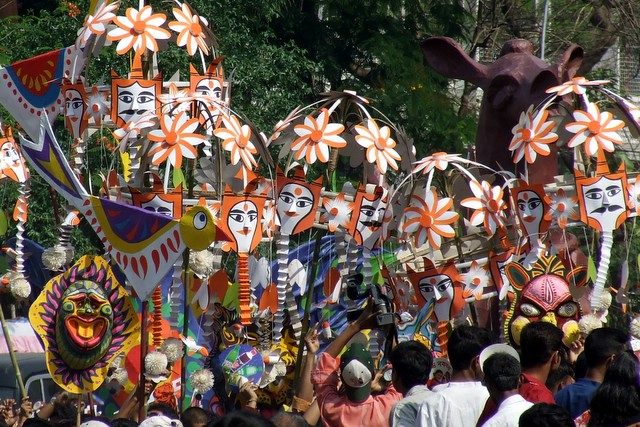
The Bengal calendar was first introduced by Emperor Akbar the Great, one of the most eminent rulers of the Mughal Dynasty in India, who reigned from 1556 until his death. Akbar’s reign marked the “classic period” of the Mughal Empire. The Mughal emperors were Central Asian Turco-Mongols who claimed direct descent from both Genghis Khan as well as Timur, the conqueror and founder of the Timurid Empire in Persia and Central Asia. At its greatest extent, the Mughal Empire was the second largest to exist on the Indian continent.
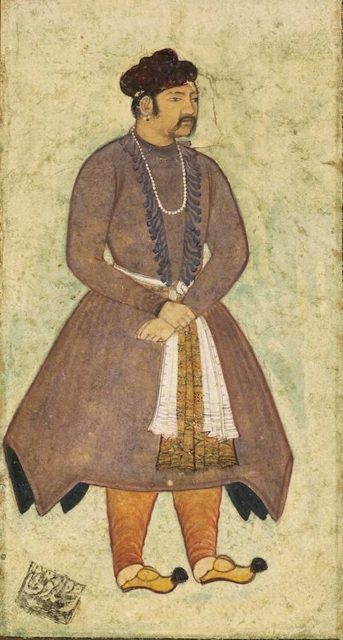
Through two decades of his rule, Emperor Akbar had set up one of the most powerful empires on Earth during that time. Assured of his reign, the emperor also put efforts into more intellectual pursuits concerning the diversity of its kingdom whether they were religious, artistic or philosophic ones. As Akbar reigned over communities of various religious practices, he managed to combine their various calendars into one. His fusion of Hindu and Islamic dating systems created a new calendar still in use today.
The calendar was an ambitious goal and was introduced to the entire Mughal Empire, but it did not persist long after Akbar’s death. However, Bengal remained the one exception where the calendar survived and became integral to both agricultural and Hindu religious practices. The current year of this calendar is 1422, matching 2016 in Gregorian countings. In April 2017, it will be the year 1423.
Colorful and vibrant festivities
Singing, processions, and fairs dominate the Bengali New Year celebrations, which begin at dawn. The day is marked by visiting relatives, friends, and neighbors with specially prepared dishes for guests. Some of the meals are ‘pantha bhaat’ and ‘ilish maach’, or fermented rice and hilsa fish. People also bathe and thoroughly clean their houses in order to symbolically prepare for the coming year.
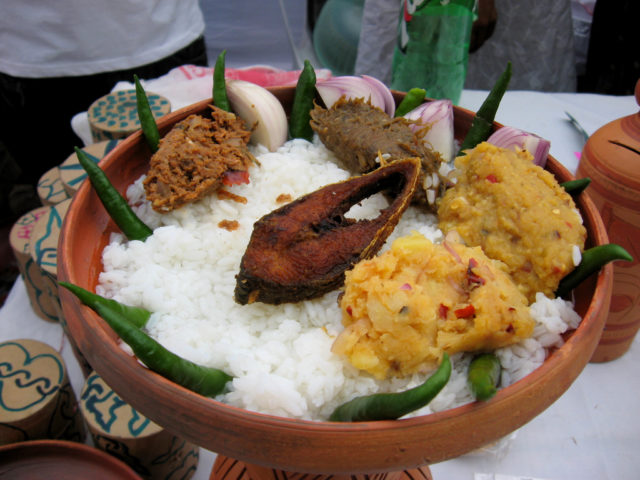
From the deep heartland of Bengal, the celebrations have evolved and become most dazzling in major cities like the capital of Bangladesh, Dhaka. In Dhaka, the ceremonies begin with people gathering under a big Banyan tree, where artists perform a song written by the famous Bengali poet Rabindranath Tagore, known as “Esho, he Boishakh, Esho Esho” (“Come, O Boishakh, Come, Come”). The song is presented to welcome the New Year, and people group around any river bank or lake to witness the first sunrise.
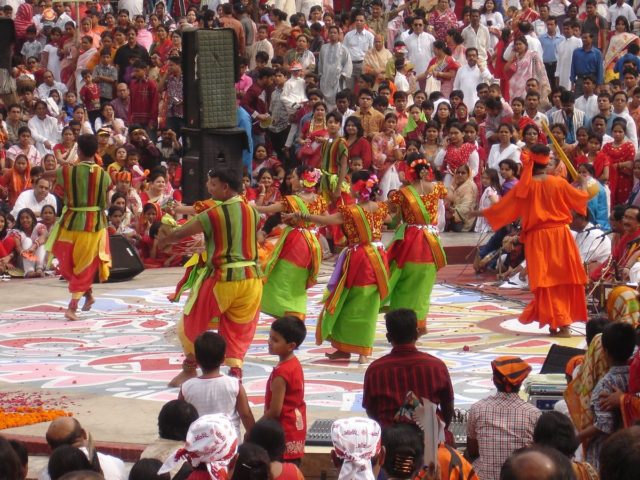
Colors dominate this festival, which is followed by a huge procession organized by students and teachers of the national Faculty of Fine Arts in Dhaka. Colors are reflected in the classic Bengali clothes worn on this day by everyone attending in the crowds. Women wear saris and have flowers in their hair; men wear traditional punjabi.
Unlike other major celebrations in Bengali culture or around the world where people are anticipated to exchange gifts, during Pôila Boishakh there are no such expectations. The celebrations aim to appreciate the simpler way of life and the rural heartland roots of the Bengal communities.
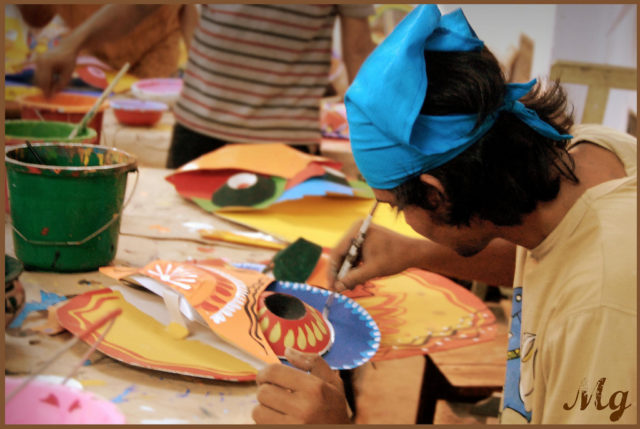
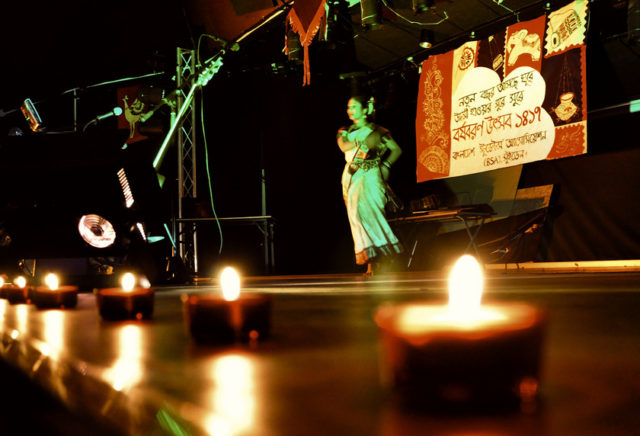
On the other hand, in the Indian city of Kolkota where the holiday is also cherished, it is believed that this is the perfect time to get married. Vendors sell clothes at huge discounts for the holiday occasion. The Indian also city hosts one of the most notable music festivities of all, the Bengal Sangit Mela.
Pohela Boishakh designates a new Bengal business year too. Business owners start the day with a new ledger, clearing out the old one. Special mantras are chanted all along. The traditional greeting for Bengali New Year is “Shubhô Nôbobôrsho”, which literally translates to “Happy New Year”.
